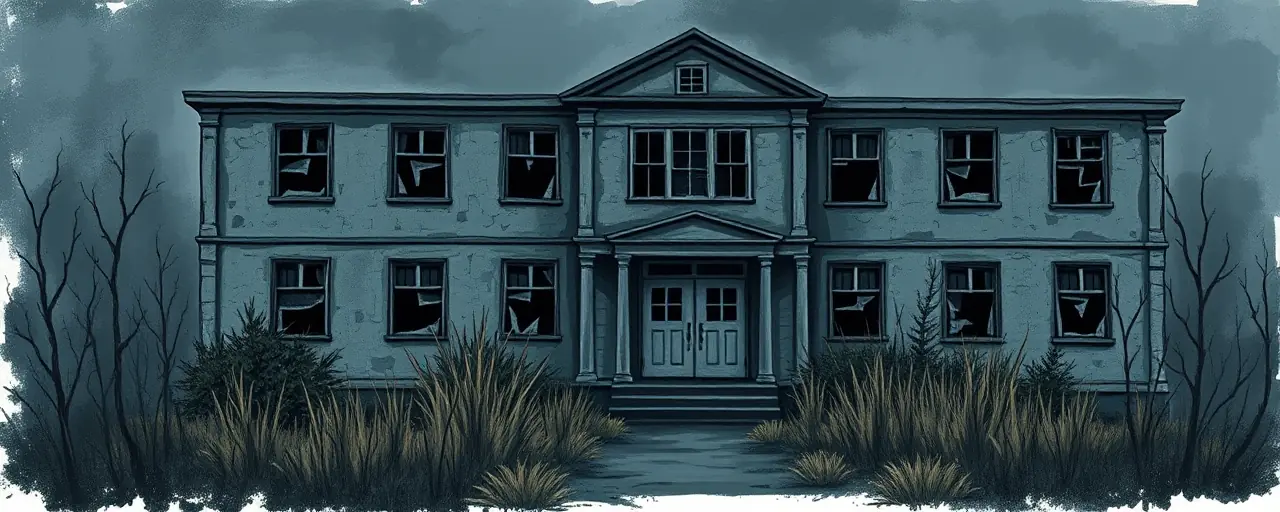A Breach of Trust in Boone County
In a quiet corner of West Virginia, a trusted school official turned a routine job into a multimillion-dollar heist. Michael David Barker, once the maintenance director for Boone County Schools, pleaded guilty on April 7, 2025, to conspiracy to commit mail fraud. His scheme siphoned more than $3.4 million from a district already stretched thin, exploiting funds meant to help students weather the COVID-19 pandemic. The revelation has left parents, teachers, and taxpayers reeling, wondering how such a betrayal slipped through the cracks.
Barker’s downfall began with a seemingly mundane task: ordering janitorial supplies. From November 2019 to December 2023, he collaborated with Jesse Marks, a supplier from Rush Enterprises, to overbill the Boone County Board of Education. Hand soap, trash liners, and face masks arrived in smaller quantities than invoiced, but the payments told a different story. Barker approved the padded bills, and the district mailed checks totaling $4.3 million to Marks’ company, with roughly 80 percent of that amount tied to fraud.
Cash in Envelopes, Losses in Classrooms
The scheme unraveled as investigators traced the money’s path. Marks cashed the district’s checks, then handed Barker wads of cash in manila envelopes. Barker used his cut to buy vehicles, equipment, and spruce up his home in Foster, West Virginia. Meanwhile, Boone County Schools lost millions that could have funded books, desks, or better ventilation systems, especially critical during a pandemic. Acting U.S. Attorney Lisa G. Johnston called it a betrayal driven by greed, noting the harm to a system serving thousands of children.
This wasn’t a solo act. Marks, 65, admitted his role in February 2025, facing sentencing in July. Barker’s parents, Michael P. and Lana Barker, also got tangled in the mess, pleading guilty to structuring cash deposits to dodge bank reporting rules. Between November 7 and November 28, 2023, they split $97,215 into 11 smaller deposits, each just under $10,000, to avoid scrutiny. Their actions hint at a broader family effort to hide the scheme’s profits, though the full scope remains under investigation.
A Wider Lens on School Fraud
Boone County’s ordeal fits into a troubling pattern. Across the U.S., pandemic relief funds for schools have proven ripe for exploitation. In Minnesota, a nonprofit swindled $250 million by faking meal program claims, splurging on luxury goods instead of feeding kids. California’s community colleges lost $7.6 million in 2024 to fake identities claiming aid. These cases expose a harsh reality: emergency funds, rushed out to meet urgent needs, often lacked the oversight to stop crafty opportunists.
Experts point to procurement as a weak spot. School districts, juggling tight budgets and urgent demands, rely on employees like Barker to vet suppliers. Yet, when trust fails, the fallout hits hard. Funds vanish, trust erodes, and students lose out. In West Virginia, a state audit found 37 of 54 districts flouting spending rules, from pool passes to shady vendor deals. Boone County’s case stands out for its scale, but it’s hardly alone in revealing cracks in the system.
The Ripple Effects of Stolen Funds
When money disappears from school budgets, the damage spreads fast. Classrooms go without supplies, repairs stall, and programs shrink. In Boone County, $3.4 million could have bolstered learning recovery efforts after pandemic disruptions, a need still pressing in 2025. Instead, it fueled one man’s lavish upgrades. Beyond dollars, the scandal dents public faith in schools, already battered by years of funding fights and political squabbles over education priorities.
Law enforcement sees this as a wake-up call. The FBI, IRS, and state agencies teamed up to crack the case, signaling a push to reclaim lost funds and deter copycats. Barker faces up to 20 years in prison and $3.4 million in restitution when sentenced in July 2025. Advocates for stronger oversight argue that prevention beats punishment, urging tighter controls on how schools spend relief dollars. Others caution that too many rules could bog down districts already scrambling to keep lights on and kids learning.
Piecing Together Accountability
The Boone County saga lays bare a tough truth: schools are vulnerable when oversight lags. Barker’s scheme thrived for four years, exploiting a crisis that demanded quick spending over careful checks. Investigators credit teamwork across agencies for exposing it, but questions linger about why it took so long. The U.S. Attorney’s Office vows to chase every lead to recover funds, a daunting task given how cash can vanish into personal splurges like Barker’s.
For West Virginia families, this isn’t just a headline; it’s a hit to their kids’ futures. The case underscores a national challenge: balancing speed and scrutiny in times of crisis. As courts weigh Barker’s fate, and others tied to the fraud, the bigger test lies ahead. Can schools shore up defenses against those who’d rob them blind, or will the next big scam just wear a different face? Time, and tighter rules, will tell.
